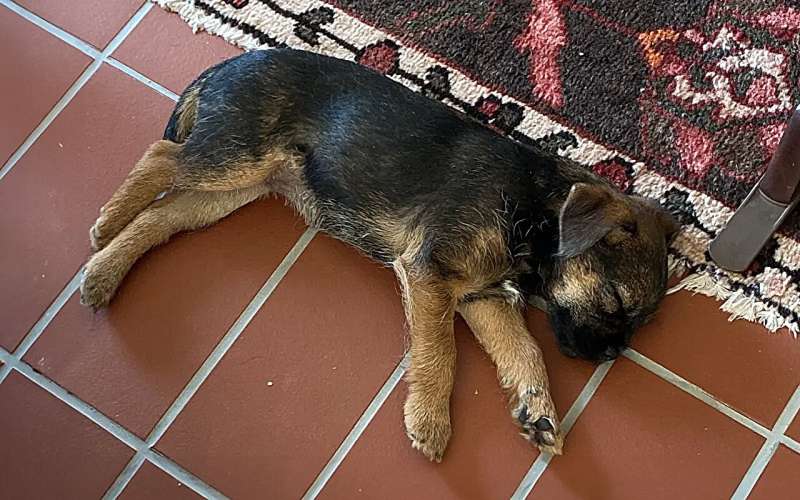This article has been reviewed according to Science X's editorial process and policies. Editors have highlighted the following attributes while ensuring the content's credibility:
fact-checked
trusted source
proofread
A sleep apnea collar enhances diagnostics of canine sleep-disordered breathing

Sufficient, high-quality sleep is important to the welfare of dogs. During sleep-disordered breathing, airflow is obstructed, and the body does not get enough oxygen.
A study conducted at the University of Helsinki found that sleep apnea is more common among brachycephalic dogs, or dogs whose snouts and skulls are shortened and flattened, than among dogs with longer snouts. The former also snore more than the latter.
However, sleep apnea does not impair brachycephalic dogs alone. Instead, it was also observed in long-snouted dogs in the study. In addition to brachycephaly, factors predisposing to sleep apnea include excess weight as well as moderate or severe symptoms associated with brachycephalic obstructive airway syndrome (BOAS).
The study demonstrated that a sleep apnea collar worn at home enables the reliable and easy detection of sleep apnea in dogs. The device, placed around the dog's neck to measure breathing during sleep, was worn in the study for one night.
Previously, research on canine sleep apnea has only been possible in the laboratory. The collar used in the study is not yet in general use.
"Based on the symptoms observed by the owner, sleep apnea can be suspected even before the collar examination. Symptoms that may indicate sleep-disordered breathing include atypical sleeping positions, respiratory pauses during sleep and nocturnal restlessness. However, snoring alone does not necessarily mean that a dog has sleep apnea," says Iida Niinikoski, Licentiate of Veterinary Medicine.
In addition, the study demonstrated that a low-grade inflammatory state occurs among English Bulldogs, similar to that observed in human sleep apnea. In humans, even such mild inflammation increases the risk of cardiovascular diseases, among other disorders.
According to Niinikoski, the detection of sleep apnea in dogs is important, as it causes recurring disruption and fragmentation of sleep, which reduces sleep quality. It is also known that severe, untreated sleep apnea in humans is associated with significant health risks, such as premature mortality.
"You should contact a veterinarian if you suspect that your dog has sleep apnea. Symptoms can be treated with a range of surgical and pharmacological methods. Since obesity predisposes all dogs to sleep-disordered breathing, avoiding weight gain is important. It's important to note that the occurrence of this serious problem could be reduced by selectively breeding brachycephalic dogs to have longer snouts," Niinikoski says.
Iida Niinikoski, LVM, defended her doctoral thesis, titled "Sleep-disordered breathing and inflammatory response in dogs," on 15 June 2024 at the Faculty of Veterinary Medicine, University of Helsinki.
More information: Thesis: Sleep-disordered breathing and inflammatory response in dogs
Provided by University of Helsinki





















